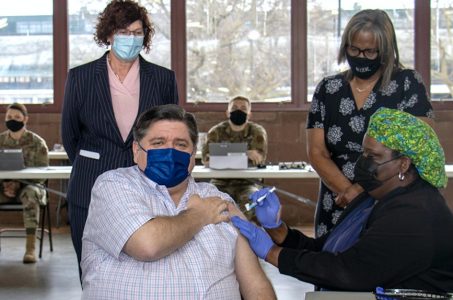Former Providence Mayoral Candidate Harrop Gets Lifeline in Case Challenging Rhode Island Sports Betting
Posted on: December 6, 2019, 03:10h.
Last updated on: December 6, 2019, 05:39h.
A Rhode Island Superior Court judge ruled Thursday that Dr. Daniel Harrop’s case challenging the constitutionality of sports betting in the state can proceed. That’s after the Republican activist produced evidence he has been “harmed” by the endeavor.

In September, an Ocean State court dismissed Harrop’s case, saying the former Providence mayoral candidate had not been directly traumatized by sports betting. After Judge Brian Stern’s dismissal, Harrop produced evidence that he wagered on a New England Patriots game last year, paving the way for the case to proceed.
Local media reports did not mention what Patriots contest Harrop bet on, or the amount that he lost. But the fact this bet was a loser is enough to constitute “harm” in the eyes of the court.
As noted by Chief Justice Warren, ‘[s]tanding has been called one of the [most] amorphous concepts in the entire domain of public law,” said Stern in his decision.
At the core of Harrop’s argument is the belief that sports betting in Rhode Island needs to be directly approved by voters. Staffers for Gov. Gina Raimondo, a Democrat, rebut that thesis, saying that when voters there approved traditional casino gaming in 2012 and again in 2016, sports betting was covered as part of those votes.
Looking For Precedent
Following the 2018 Supreme Court ruling on the Professional and Amateur Sports Protection Act (PAPSA), states have taken various approaches to legalizing sports betting. Some, such as Colorado most recently, have put the question directly to voters via ballot initiatives.
Others have ushered it in through broader gaming legislation, and some have defined sports betting as being part of standard casino fare, such as table games. However, there is some precedent for states also refuting sports betting as being linked to traditional gaming options.
For example, an anti-gaming group in Florida believes recently proposed sports betting legislation there isn’t going anywhere because sports wagering is part of casino gaming, something voters there opted against expanding during the 2018 mid-term election.
In Rhode Island, it’s clear that Harrop has standing to push his case forward.
This Court has parsed through Rhode Island and federal jurisprudence to interpret the standing doctrine and finds that the Plaintiff has standing, and his claim is justiciable,” according to Stern’s decision.
Casino.org reached out the Rhode Island Department of Revenue for input on the matter, but was told the agency doesn’t comment on pending litigation.
What’s Next
Harrop’s complaint appears more rooted in the constitutional veracity of sports betting in Rhode Island and letting voters have a say on the matter than outlawing the activity.
The Ocean State was the first in the Northeast to launch sports betting, getting it off the ground in November 2018. But it hasn’t yet generated the revenue policymakers were hoping for.
In the budget for the current fiscal year, the sports wagering revenue estimate is $22.7 million. But in the first three months of that period, the sportsbook at Twin River, the state’s biggest casino, had turnover of just $3.1 million, according to Rhode Island Lottery.
Related News Articles
Minnesota Sports Betting Bill Scores First Victory
Most Popular
Mega Millions Reportedly Mulling Substantial Ticket Price Increase
NoMad Hotel to Check Out of Park MGM on Las Vegas Strip
Most Commented
-
End of the Line for Las Vegas Monorail
— April 5, 2024 — 90 Comments -
Mega Millions Reportedly Mulling Substantial Ticket Price Increase
— April 16, 2024 — 9 Comments -
Long Island Casino Opponents Love New York Licensing Delays
— March 27, 2024 — 5 Comments
















No comments yet